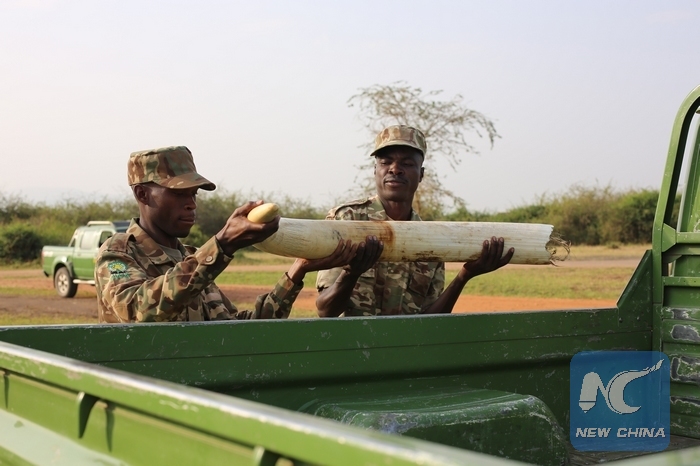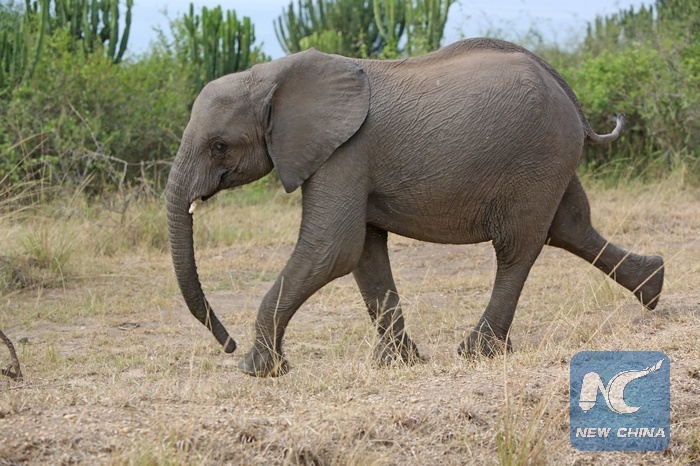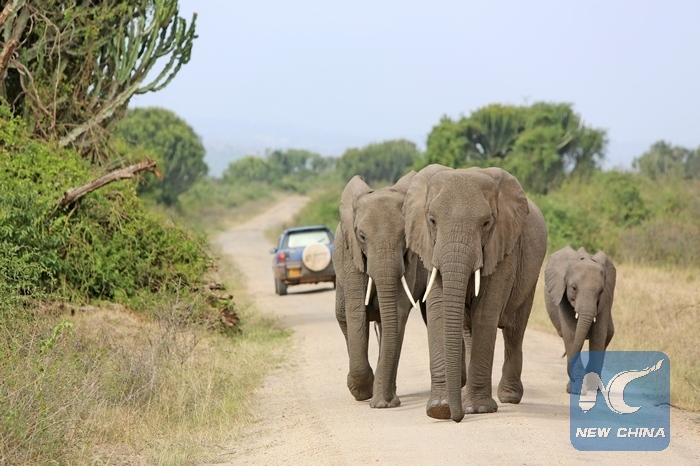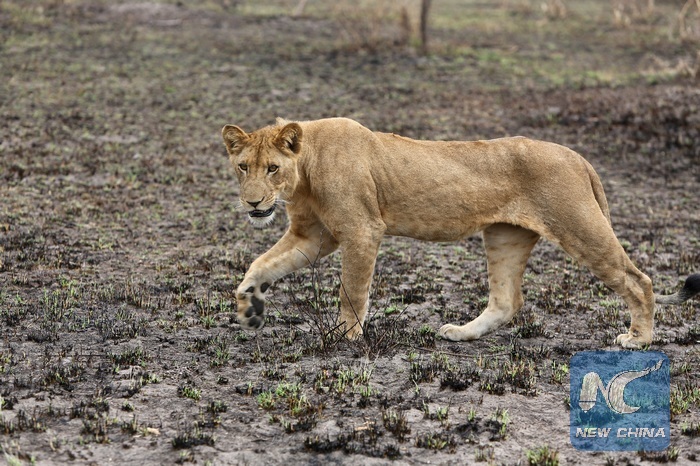
Rangers load an elephant tusk rescued from poachers onto a waiting pick-up truck at Queen Elizabeth National Park in the western Ugandan district of Kasese, January 31, 2017. Uganda has hailed China's announcement to ban trade of ivory arguing that the move would be a great push to saving the giant mammals in Africa. The Chinese government last year announced that it would ban the trade of ivory by the end of this year (Xinhua/Ronald Ssekandi)
KASESE, Uganda, Feb. 6 (Xinhua) -- On a hot afternoon, the gentle mammals take a stretch to Kazinga Channel in Queen Elizabeth National Park in western Uganda to quench their thirst.
Gently in a group, one after the other they moved to the amusement of tourists.
Edward Asalu, the Uganda Wildlife Authority Conservation Area Manager told Xinhua on Friday that elephants are one of the flagship animals in the park that attract tourists.

An elephant walks at Queen Elizabeth National Park in the western Ugandan district of Kasese, January 31, 2017. Uganda has hailed China's announcement to ban trade of ivory arguing that the move would be a great push to saving the giant mammals in Africa. The Chinese government last year announced that it would ban the trade of ivory by the end of this year (Xinhua/Ronald Ssekandi)
Their beauty is however cut short by armed poachers who hunt them down for ivory.
Uganda is a transit and also country of origin of ivory that is sold to the Asian market.
China's announcement late last year to ban ivory trade by the end of this year brings a smile to many conservationists here.
According to the Chinese government, the commercial processing and sale of ivory will stop by March 31, and all registered traders will be phased out, bringing a full halt to the market by the end of the year.

Elephants walk at Queen Elizabeth National Park in the western Ugandan district of Kasese, January 31, 2017. Uganda has hailed China's announcement to ban trade of ivory arguing that the move would be a great push to saving the giant mammals in Africa. The Chinese government last year announced that it would ban the trade of ivory by the end of this year (Xinhua/Ronald Ssekandi)
Asalu referred to China's announcement as a game changer in efforts to protect elephants in Africa.
He argued that when the market is cut, the traders will have no option but to drop the trade.
Angie Grenade, another conservationist argued that China should also be directly involved in conservation efforts in Africa.
She said this would give a big boost to the protection of elephants.
"They can identify a conservation project in Africa and sponsor it, this would be great," she said noting that back in China, the young generation should be urged to conserve the environment.

A lion roams at Queen Elizabeth National Park in the western Ugandan district of Kasese, January 31, 2017. Uganda has hailed China's announcement to ban trade of ivory arguing that the move would be a great push to saving the giant mammals in Africa. The Chinese government last year announced that it would ban the trade of ivory by the end of this year (Xinhua/Ronald Ssekandi)
Poaching of elephants in this part of the country has gone down according to Asalu. He attributes the fall to the vigilance of the country's security forces.
Last year alone, Queen Elizabeth National Park, the country's second largest park lost on three elephants to poaching.
Asalu said game rangers, the military and the police are always on the lookout for poachers.
"Since last year, we have lost three elephants that were poached. This year we have not had incidents of poaching because these days we are all the time on the ground. We have closed all the gaps to that would lead to poaching," he said.

